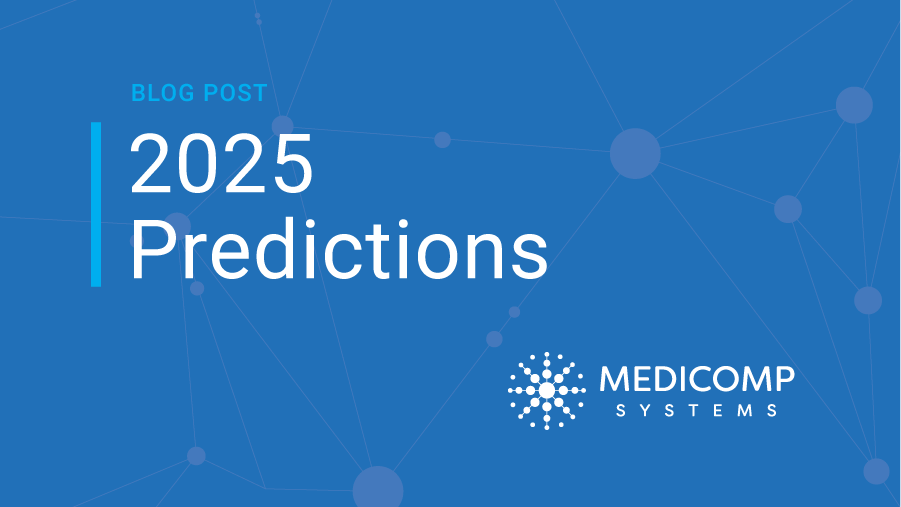As we march ahead to 2025, healthcare technology stands at a critical inflection point. The rapid deployment of artificial intelligence across the healthcare ecosystem has brought both promising advances and serious challenges that demand thoughtful solutions. Drawing on insights from industry experts and our own analysis, here’s what we expect to see in the coming year.
The End of Unchecked AI Experimentation
2025 will mark a decisive shift from widespread AI experimentation to measured, validated implementation in clinical settings. Healthcare organizations are recognizing that the rush to deploy AI solutions trained primarily on synthetic data has created potential risks that must be addressed. In response, we’ll see the emergence of strict validation protocols ensuring AI tools are trained on real patient data and validated in actual clinical environments.
The Rise of Trusted AI Networks
A promising development on the horizon is the formation of “trusted AI networks” – collaborative ecosystems where healthcare organizations share validated clinical algorithms and outcomes data. These networks will create a more reliable foundation for AI deployment while advancing true interoperability in healthcare. Rather than organizations working in isolation, these networks will facilitate the sharing of best practices and validated models.
Point-of-Care Validation Takes Center Stage
The healthcare industry is moving beyond the fantasy of AI replacing clinical judgment to a more realistic model of augmented intelligence. We’ll see increased adoption of point-of-care validation tools that combine AI efficiency with human oversight. This trend will be particularly evident in pharmacy settings, where AI-enabled prescription verification systems will work in tandem with pharmacist expertise to ensure patient safety and accurate documentation.
Addressing the Documentation Crisis
Healthcare organizations will take decisive action to combat what some experts are calling the “Instafraud” crisis – the use of AI-generated documentation and aggressive upcoding practices that have drawn regulatory scrutiny. The emphasis will shift to proactive technology solutions that prevent documentation and coding errors rather than trying to catch them after the fact. This approach will combine AI capabilities with human clinical expertise at the point of care.
Clinical Trials and Real-World Validation
The clinical trials sector will undergo significant changes in its approach to data and validation. The industry will move away from heavy reliance on synthetic data and untested AI models, instead emphasizing the importance of real-world patient data validation. This shift will lead to more reliable and reproducible trial results, particularly in how patient outcomes are documented and validated.
Integrated Clinical Intelligence Platforms
Rather than deploying isolated AI tools, healthcare organizations will focus on creating integrated clinical intelligence platforms. These comprehensive solutions will combine decision support, documentation improvement, and patient engagement capabilities while maintaining essential human oversight. This integrated approach will help organizations maximize the value of their technology investments while ensuring patient safety and care quality.
Onward!
The healthcare technology arena in 2025 will be defined by a mature, measured approach to AI implementation that emphasizes validation, human oversight, and real-world outcomes. As the industry moves beyond the initial hype cycle of AI adoption, we’ll see the emergence of more sustainable and effective solutions that truly enhance clinical care while maintaining the critical role of human expertise.
These developments signal a positive evolution in healthcare technology – one that balances innovation with responsibility, and efficiency with accuracy. Organizations that embrace this balanced approach will be best positioned to deliver improved patient outcomes while maintaining regulatory compliance and operational efficiency.
